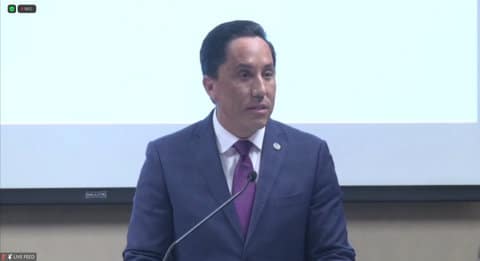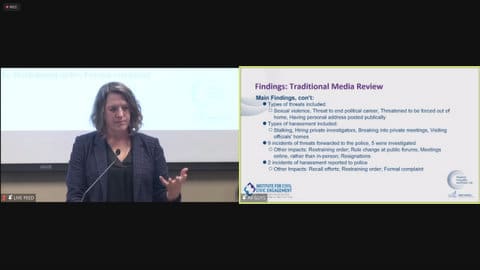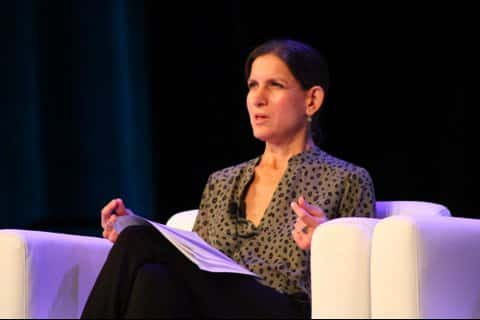
13 Dec Public Officials Subject to Increasing Harassment

“When folks try to use intimidation or violence,” said San Diego Mayor Todd Gloria at a Dec. 8 California Commission on the State of Hate forum, “you will not get a change in behavior from this elected official.” (Screenshot captured by Samantha Kennedy / The CC Pulse)
By Samantha Kennedy
Public officials are facing harassment and threats that go beyond the policies they back, leading some to remain silent on policy or consider leaving office altogether.
Within the last 10 years, threats and violence against public officials — including election workers, elected officials and city staff — have increased nationally. California’s Commission on the State of Hate, which was created to study hate in the state, hosted a Dec. 8 community forum, “Threats and Harassment Towards Public Officials and Their Impact,” to discuss what threats do to a public official and potential solutions to lessen them.
>>>Read: Experts Address Doubts About Election Process
San Diego Mayor Todd Gloria, the city’s first openly gay man and person of color to serve in that position, said the threats he has received have left him undeterred in his work for the community.
“When folks try to use intimidation or violence,” Gloria said during the forum, “you will not get a change in behavior from this elected official.”
Research from the University of San Diego showed that the most online harassment against San Diego policymakers was directed toward Gloria and San Diego County Supervisor Nathan Fletcher. Every single San Diego policymaker in the sample received some type of aggressive tweet.
Of those surveyed, which included over 300 elected officials in San Diego County, 75% say they have been threatened or harassed. Threats and harassment often negatively impact the mental health of elected officials, with over half having considered leaving office because of them.
“People aren’t sleeping,” said Rachel Locke, co-author of the research and director of the violence, inequality and power lab at the Kroc Institute for Peace and Justice at the University of San Diego’s Kroc School. “Increased stress, conflict within the home, people are hiding things from their partners because they don’t want to scare their partners.”
But men, such as Gloria, are less likely to consider leaving than their women colleagues.
Just over 60% of women who reported threats or harassment considered leaving office. Women are also disproportionately impacted by threats and harassment. In many cases, threats toward women are more personalized, sexualized and prevalent in media coverage.
- (Screenshot captured by Samantha Kennedy / The CC Pulse)
Locke and her co-author, Carl Luna, who is the director of the Institute for Civil Civic Engagement, said that some potential solutions to preventing harassment could be increasing accountability for perpetrators, reporting all incidents even if it is not a crime, increased protection and training for officials, and revisions to the Brown Act, which gives the public the right to participate in meetings.
One San Diego County elected official from the Poway Unified Board of Education said those presented solutions could work, but they come with their own challenges.
Darshana Patel, the president of that board, said that they have experienced harassment from members of the public like never before and have had to adapt.
Harassment has often stemmed from criticisms of school policies relating to vaccines and masking during COVID. Other times threats have been because of equity policies the board has adopted, which has been identified by other local elected officials as reasons for their harassment.
Patel said public speakers are asked to sit while making their comments to reduce the threat to board members. The challenges arise when protection is needed for officials, she said. Because officials are not given any security, funding for that protection would have to come out of the district’s general fund instead of being used for students.
Some instances of harassment on Patel’s board have been reported by the media, but most aren’t and many elected officials don’t report them at all.
Elected officials were encouraged to report and document all incidents of threats and harassment they receive, which gives officials a space to normalize the issues they are facing.
This resource is supported in whole or in part by funding provided by the State of California, administered by the California State Library in partnership with the California Department of Social Services and the California Commission on Asian and Pacific Islander American Affairs as part of the Stop the Hate program. To report a hate incident or hate crime and get support, go to CA vs Hate.







No Comments